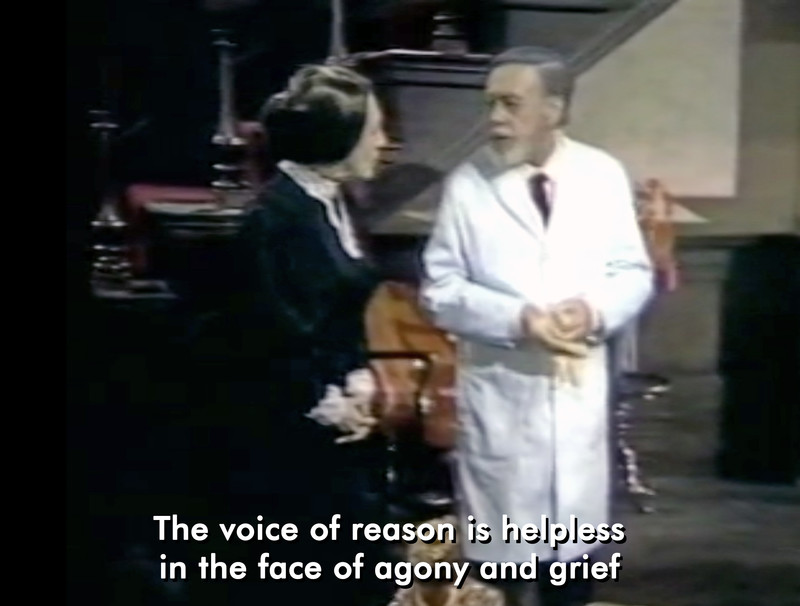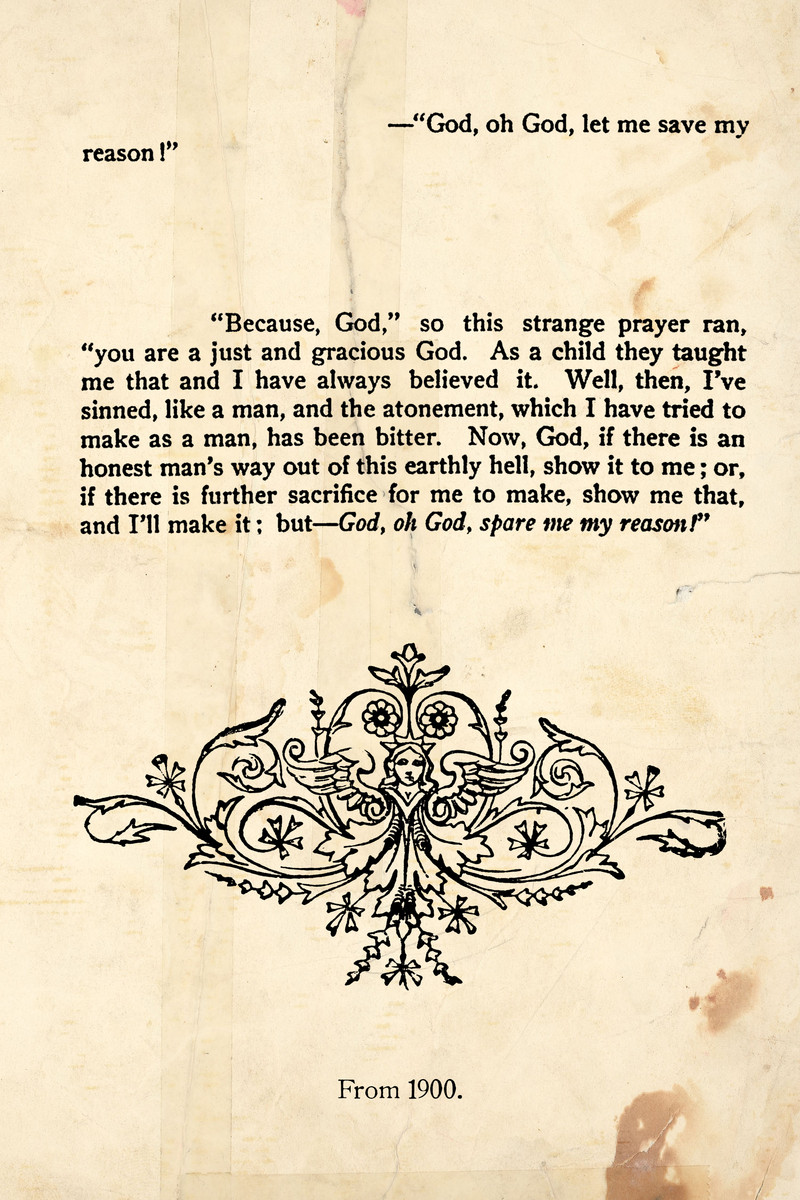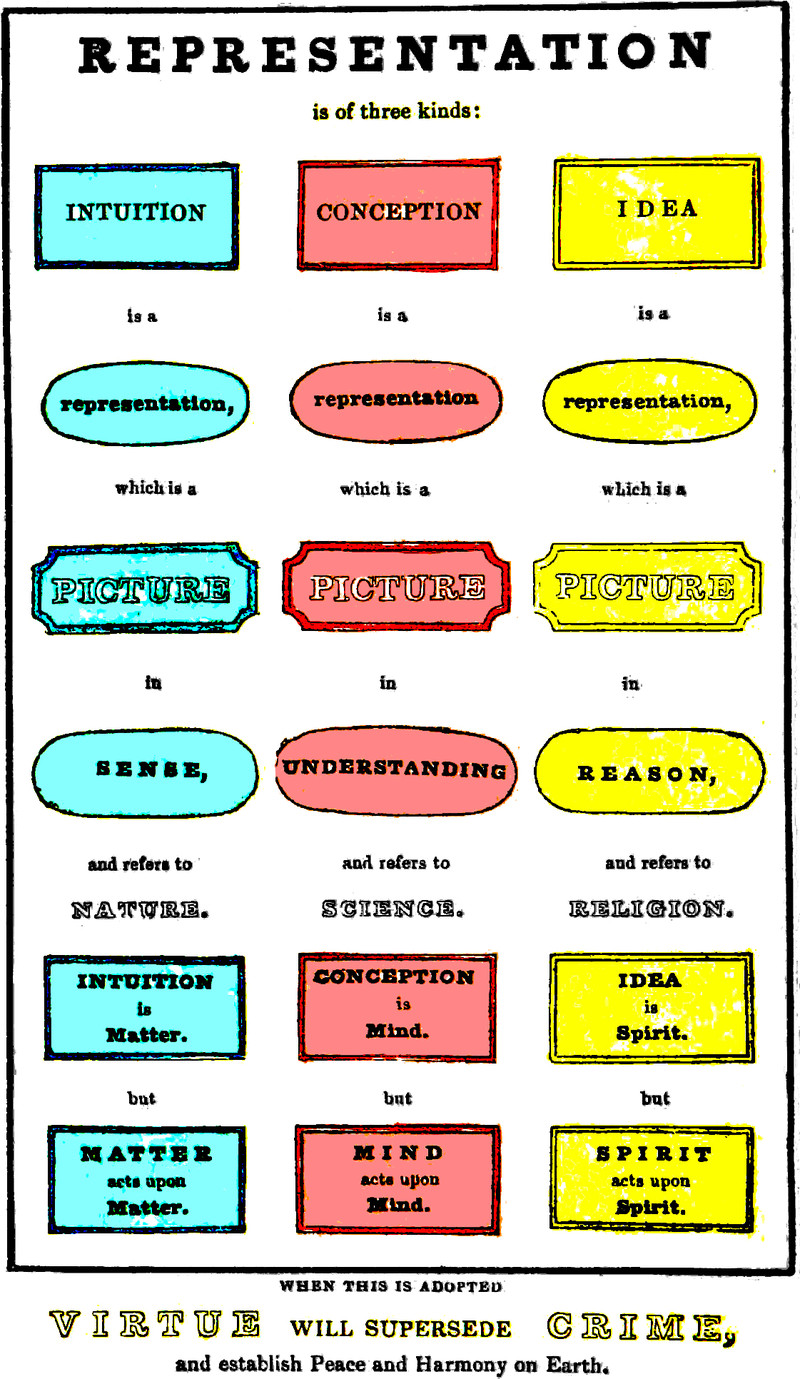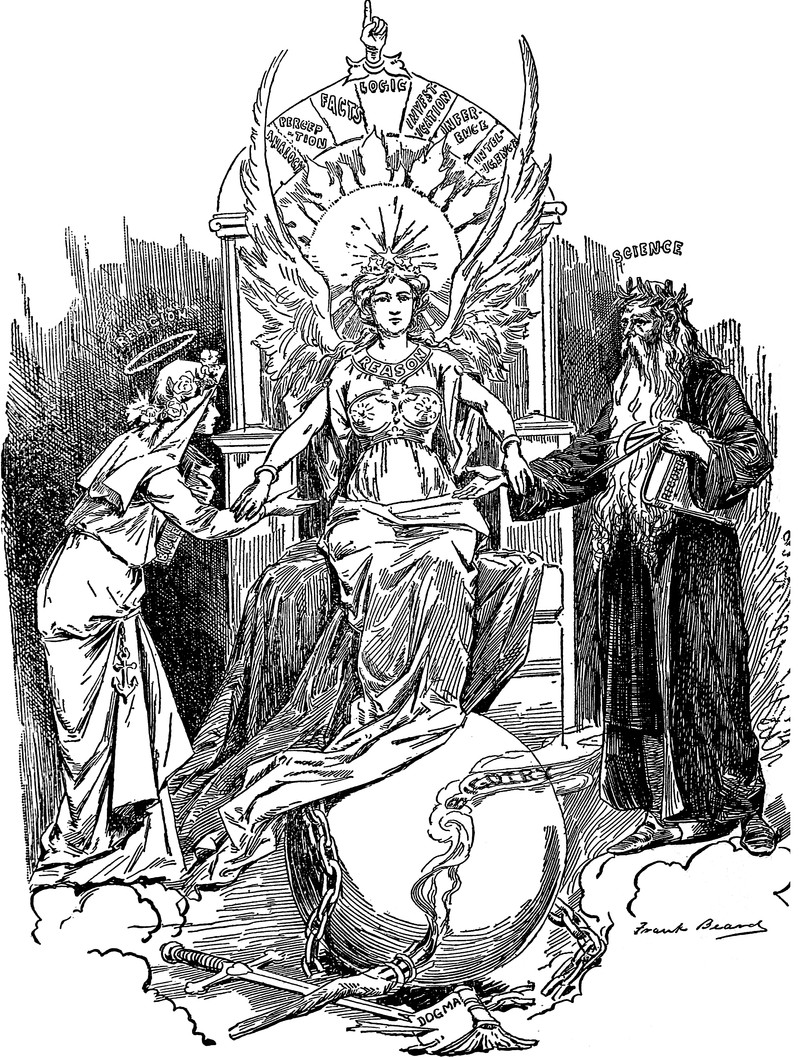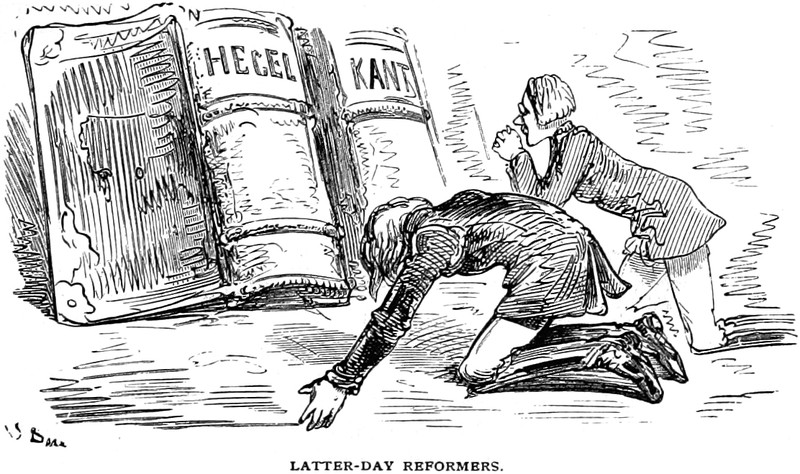 |
The sublime absurdist playwright N. F. Simpson offers the best explanation we've encountered for how there are no rational grounds for rationalism and how belief in reason is pure superstition. The following magnificence comes to us from If So, Then Yes:
The idolatry of reason indeed has a lot to answer for. In the interests of reason, and pursuant on an enthusiastic and cocksure gullibility so fathomlessly idiotic that only the witlessly sophisticated can succumb to it, the world has been handed over irreversibly, lock, stock and barrel, to the sorcerer's apprentice. For we belong, ladies and gentlemen, whether we like it or not, to a species so idiotically infatuated with itself as to act in perpetual disregard of its own fallibility. In religion, in philosophy, in politics and now in science, together with its handmaiden, technology — which, both in themselves and in the ethos to which they give rise, combine all the fatuities of the other three with even grosser ones of their own — we luxuriate in abject folly. A word for this folly already, as you must know, exists. It is hubris. But hubris is built into the human psyche, and there is no escape from it for any of us. The fool, fixed in his folly, may think he can turn the wheel on which he turns, as it has been well expressed. The best that in the light of this any of us can do is to turn aside from time to time as occasion offers from the brash and mindless pursuit of progress, and light a small candle to doubt and uncertainty, to mystery and awe and wonder and humility. Or, if that should seem a wanton waste of good candle-grease, then to one or other of those more unassuming little certainties which, equally daft though they may be, are so much less stultifyingly dreary and destructive than the grandiose banalities behind which we all go marching, with bands playing and Professor Dawkins leading the way with boyish enthusiasm, faster and faster towards the abyss.
It was Wittgenstein, was it not, ladies and gentlemen, who remarked that to be religious is to know that the facts of the world are not the end of the matter. There are, as John Cooper Powys among others so clearly saw, abysses of being and reality totally outside this "pinfold", in which, as Milton says, we are confined, adding that all the great urges of our spirit come nearest to the secret of the universe when they enjoy nature with the detachment of the pilgrim rather than analyse her with the curiosity of a scientist. Any imaginative illusion, he goes on, by which a person half lives, any mythology in which a person half believes, is truer in the only sense in which truth matters, than the most authenticated scientific facts. For scientific facts are the pabulum of the rational mind. But the rational mind, ladies and gentlemen, is so irrational as to proceed with bland confidence on the basis of the unprovable, and therefore rationally untenable, assumption that the human brain is fully equipped to handle whatever the cosmos can throw at it. The concept of unknowability, for which God has always been a convenient shorthand term, does not, even as a concept, begin to come within its remit. But there are no rational grounds for the assumption that a consciousness which functions in such and such a way prevents a more valid picture of the universe than one which, functioning in some other, radically different, way, gives a correspondingly different picture. Or that the brain of a man, though certainly larger and seemingly more complex than that of those other organisms, such as, let us say, the octopus, the slow-worm and the chimpanzee, with which he happens by chance to have become acquainted, vulnerable as it is to all manner of substances and other influences by which its functioning can be, and frequently is, radically altered, is necessarily presenting him at any given time with a uniquely definitive interpretation of the phenomena seemingly confronting it. Or that what by virtue of it we perceive as the truth today is of more or less validity than what was perceived as the truth yesterday, or two thousand years ago; or than what will be perceived as the truth tomorrow, or in two thousand years' time. The temporal parochialism in which we are all cribbed, cabined and confined blinds us to the fact that, as Kant has pointed out to us, space and time mark the limits of our human minds rather than those of the universe. It is to the eminent biometrist, the late J.B.S. Haldane, that we are indebted for the observation that the universe is not only queerer than we suppose, but, in his own words, "queerer than we can suppose." For, as we learn from Holy Writ, God is not merely unknown, but unknowable. A concept expressed in a slightly different form by Nietzsche, whose contention it was that all we can know of the world is the world as it appears to us. H.P.G. Wells, likewise, reminds us that neither the pig's snout nor the human brain have been evolved for the purpose of discerning the ultimate truth of things. It is well that it be borne in mind, however, that the arguments I and they have so persuasively deployed, together with those of others who take a contrary view, have been arrived at by means of the very instrument we are showing to be an unreliable one. There are, in short, no rational grounds for reliance on the rational. Belief in the paramountcy of reason is purest superstition.
|



